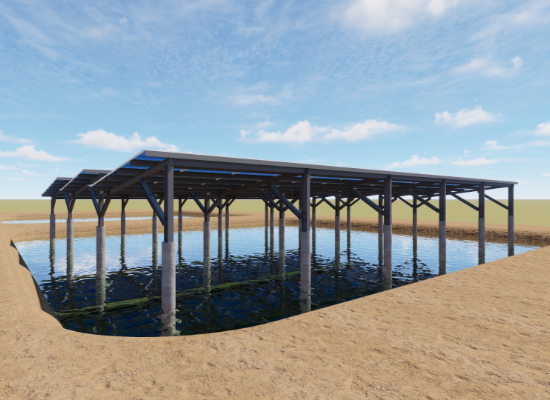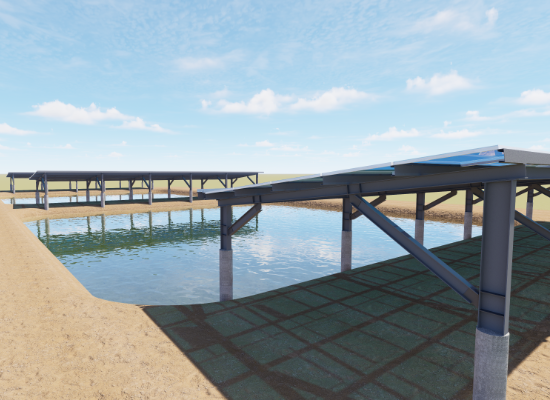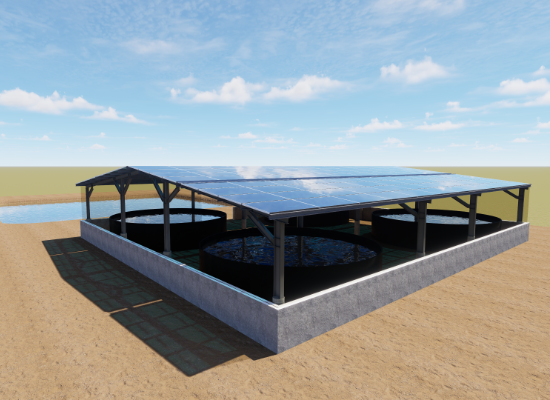Aquaculture-Solar Symbiosis is the integrated application aquaculture farming with solar power installations, offering environmental shading benefits that reduce biological stress responses and improve working conditions for aquaculture operations.
Collaborative Installation
- If target land is currently a fish pond and is located within a specified Aquavoltaics Zone, and both landowner or current aquaculture operator are interested in adopting this model, we can assist to address key pain points what you pointed out in aquaculture farming.
- Based on discussions with actual aquaculture operators, we will develop customized solutions, taking over land rental costs and installing essential infrastructure aligned with farming requirements.
- This approach enhances aquaculture survival rates and optimizes working conditions, creating a win-win situation for all stakeholders.
Installation Types
Installation methods vary depending on technical farming requirements, species characteristics, and local environmental factors. Based on consultations, installations are customized to ensure optimal functionality

Outdoor Farming –
Column-Type Structures
- Most common setup for fishery-solar Symbiosis.
- Designed with spaced-out columns across existing fish ponds, reducing solar and heavy rainfall impact on pond water conditions.
- Maintains sufficient gaps for aquaculture equipment, facilitating harvesting operations.
Outdoor Farming –
Embankment-Type Structures
- Installed on embankment roads adjacent to existing fish ponds, without disrupting traditional farming practices.
- Provides shade for farmers, reducing exposure to sunlight and rain during operations.
- Enhances workplace comfort and improves farming efficiency.


Indoor Farming –
Rooftop-Type Structures
- Higher-cost installation with stable production environments.
- Covered with agricultural film to buffer environmental changes, prevent disease from external wildlife.
- Ideal for high-value aquaculture species.
Installation Process
Zoning & Environmental Impact Assessment
Zoning & Environmental Impact Assessment
1. For Priority or Early Adoption Zones
Requires self-assessment of environmental & social impact mitigation measures.
2.For Environmental Risk Reduction Zones
Submission of countermeasure plans for review by electricity authorities.
3.For Non-Specified Fishery-Solar Zones
Requires submission of a special project proposal and environmental/social impact assessment report.





